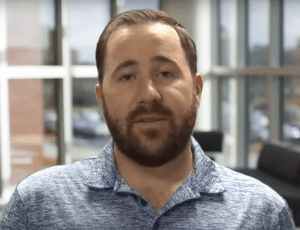In this week’s Wicklander-Zulawski / International Association of Interviewers interview and interrogation training tip, Dave Thompson, CFI, vice president of operations for WZ, talks about the advantages of conducting interviews over the phone.
In the last few years, it seems that more and more organizations are conducting interviews remotely, whether that means over the phone or with the use of some type of videoconferencing tool. Much of the reason behind this approach has been to help close out cases more quickly and efficiently without the cost of travel across the country (or sometimes to different countries) that is otherwise necessary to conduct an interview.
A lot of people are apprehensive about a phone interview primarily because they can’t see the person they’re talking to. Although that could be an obstacle when trying to communicate with somebody, I think there are a ton of advantages in conducting interviews over the phone outside of the cost savings.
One of those benefits of not being able to see each other is that it allows the interviewer to have notes, tools, and resources in front of them in case they need to do research while they’re on the phone. It allows the interviewer to avoid presenting evidence and avoid showing the subject any information from the investigation. It minimizes the likelihood of that problem.
Conducting the interview over the phone also allows the interviewer to be perceived however they talk over the phone. Sometimes people feel that they might come across as too intimidating, maybe based on their size or age. Sometimes it’s the opposite. When you talk to someone over the phone, since they can’t see you, they’ll define you based on how you talk with them. It eliminates (or at least minimizes) concerns about appearances and first impressions based on looks, clothing, etc.
There are a ton of advantages when you interview someone over the phone, but it’s really important that we take those extra steps prior to the phone interview to make sure the logistics are set up the right way, the room is still set up in the proper format for an interview, and the subject still has the ability to tell their side of the story even though we’re not there in person.
Every loss prevention investigator should strive to enhance their investigative interviewing skills as part of an ongoing commitment to best-in-class interviewing performance. This includes holding ourselves to an elite standard of interview and interrogation training that is ethical, moral and legal while demanding excellence in the pursuit of the truth. The International Association of Interviewers (IAI) and Wicklander-Zulawski (WZ) provide interview and interrogation training programs and additional guidance to investigators when dealing with dishonest employees, employee theft, sexual harassment, policy violations, building rapport, pre-employment interviewing, lying, denials and obtaining a statement.
By focusing on the latest information and research from experts in the field as well as academia, legal and psychological resources, these video tips provide interview and interrogation training techniques that can enhance the skill sets of professionals with backgrounds in law enforcement, loss prevention, security, asset protection, human resources, auditors or anyone looking to obtain the truth.
To learn more about interview and interrogation training and how you can further develop your professional skill sets, visit www.w-z.com or www.certifiedinterviewer.com.
This post was originally published in 2017 and was updated August 13, 2018.
